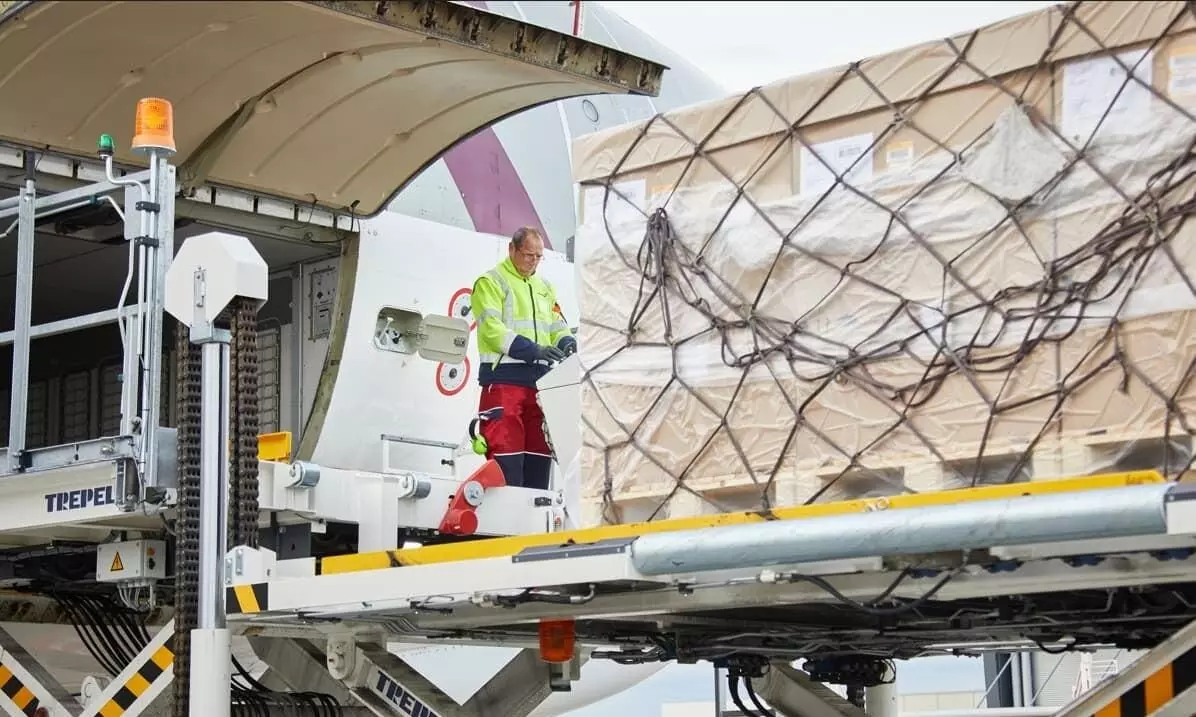
Air cargo volumes seen steady, revenues down in 2025: IATA
Cargo revenues expected to be $142 billion in 2025 (-4.7% on 2024).

Total air cargo volumes are likely to touch 69 million tonnes in 2025 (+0.6 percent on 2024 but below the previously projected 72.5 million tonnes).
"Cargo revenues are expected to be $142 billion in 2025 (-4.7 percent on 2024)," according to the latest update from the International Air Transport Association (IATA).
"This is primarily based on the expected impact of reduced GDP growth, largely influenced by trade-dampening protectionist measures, including tariffs. As a result, air cargo growth is expected to slow to 0.7 percent in 2025 (from 11.3 percent in 2024). The cargo yield is also expected to reduce by 5.2 percent, reflecting a combination of slower demand growth and lower oil prices.
"Although significant uncertainty remains on how trade tensions will evolve over the year, as of April, cargo demand was holding up well with a 5.8 percent year-on-year increase."
Additionally, the uncertainty over how the Trump Administration’s trade policies will evolve could hold back critical business decisions that drive economic activity, and with it the demand for air cargo, according to the presentation at the 81st annual general meeting of IATA in New Delhi.
Walsh also spoke about the focus on ONE Record. "For too long, aircraft have flown faster than the documentation that accompanies shipments - held back by fragmented systems, outdated processes and limited data visibility. The current system won’t meet anyone’s expectations as customs requirements evolve and e-commerce volumes surge.
"The ONE Record global data-sharing standard will be the single accurate and real time source of truth for the entire value chain that built it together. The global rollout starts in January 2026, but to gain the full benefits we’ll be counting on two things:
*The industry stakeholders who built ONE Record to use it, and
*Governments accept ONE Record data in their facilitation processes.
"In a time of growing trade complexity, industry alignment and regulatory support is more critical than ever. Better compliance, cost savings and faster processing are substantial incentives for everyone to make ONE Record work."
Industry profit to be $36 billion
The industry is likely to report net profit of $36 billion in 2025, up from $32.4 billion reported in 2024 "but slightly down on the previously projected $36.6 billion (December 2024)."
Total revenues are seen at a record high of $979 billion (+1.3 percent on 2024 but below the $1 trillion previously projected).
"The first half of 2025 has brought significant uncertainties to global markets," says Willie Walsh, Director General, IATA. "Nonetheless, by many measures including net profits, it will still be a better year for airlines than 2024, although slightly below our previous projections. The biggest positive driver is the price of jet fuel which has fallen 13 percent compared with 2024 and one percent below previous estimates.
"Moreover, we anticipate airlines flying more people and more cargo in 2025 than they did in 2024, even if previous demand projections have been dented by trade tensions and falls in consumer confidence. The result is an improvement of net margins from 3.4 percent in 2024 to 3.7 percent in 2025. That’s still about half the average profitability across all industries. Considering the headwinds, it’s a strong result that demonstrates the resilience that airlines have worked hard to fortify."
Update on SAF
IATA estimates that the average cost of sustainable aviation fuel (SAF) in 2024 was 3.1 times that of jet fuel, for a total additional cost of $1.6 billion. In 2025, the global average cost for SAF is expected to be 4.2 times that of jet fuel. This extra cost is largely the result of SAF compliance fees being levied by European fuel suppliers to hedge their potential costs as a result of European SAF mandates to include two percent SAF in the jet fuel supply, the update added.
"The behaviour of fuel suppliers in fulfilling the SAF mandates is an outrage. The cost of achieving net zero carbon emissions by 2050 is estimated to be an enormous $4.7 trillion. Fuel suppliers must stop profiteering on the limited SAF supplies available and ramp up production to meet the legitimate needs of their customers," says Walsh.

